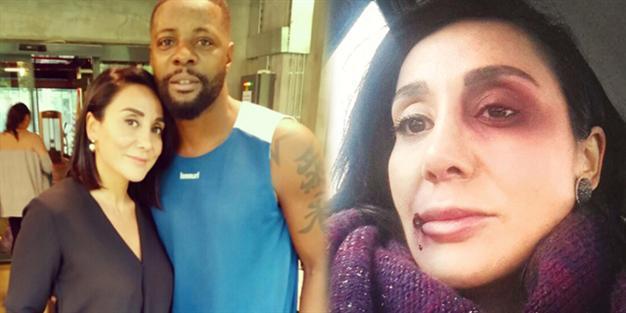Violence-proofed Turkish women
Belgin Akaltan - belgin.akaltan@hdn.com.tr

“We already knew how to get beaten by him. Probably Özgecan didn’t. She must have resisted or tried to fight back, which would have made my brother go completely nuts and made him hit harder.” These are the words of the sister of Özgecan Arslan’s murderer, speaking to daily Habertürk reporter Kübra Par.
Par asked her what she thought when she heard of Özgecan’s killing.
“I knew my brother’s rage very well,” she replied. “I thought ‘He must have beaten her to death.’ I didn’t die because I developed a resistance to his beatings. It is a disgusting thing to get used to being beaten up … Probably Özgecan was never once beaten by her father. But my brother beat us up so much ... We never hit him to defend ourselves, not even once. We knew what would have happened if we did. Maybe Özgecan resisted, which would have made my brother lose it and hit her more and more. ”
Let me recap. Özgecan Aslan was a 19-year-old university student who took a public minibus from school to her home on Feb. 11, 2015. She was attacked and brutally killed by minibus driver Suphi Altındöken. The murderer, who was sentenced to life in jail, was himself killed in prison on April 11, 2016, shot dead by another inmate.
I am trying to understand, rationalize and diagnose the escalating violence in Turkey. I believe that if we can get to know the evil better then we may be able to prevent it, perhaps solve it. The “violence breeds violence” cycle includes domestic violence, male violence, football violence, street violence, police violence. I don’t know if we can also include political violence.
I am looking into the details of incidents and related statements to understand better...
Suphi Altındöken’s mother, Naciye Tan, was not able to bury her son because no cemetery would accept the funeral. He was later secretly buried somewhere we do not know. (This alone is actually a form of violence.)
The mother attributed her son’s love of violence to a motorcycle accident that he survived at the age of 17. His married sister, speaking to Habertürk, said her brother was violent in childhood and he would beat her up whenever he lost a game of something. She also said she now refrained from having children because of “genetic and psychological reasons.”
Habertürk reporter Par asked her how she felt when her brother was killed in prison. “I wished that my father had also been killed,” she answered, adding that she was also happy for her nephew because he would now not grow up with an abusive father.
A while ago there was an incident in the news in which a journalist was beaten up by her boyfriend, a TV actor. In her statement, she said he made fun of her two bruised eyes after one beating, telling her “You look like a panda.”
There were about five or six serious beating incidents in total before she went public. The boyfriend/actor had apparently told her: “You’re like a rock. All my previous girlfriends that I beat up were hospitalized. But you’re tough like a rock. You get up and are able to go out immediately after a beating.”
Ha?
So, I understand that this resistance to being beaten up must be as widespread as beating itself. I assume there is a self-developed skill among Turkish women to resist, to hide, and to somehow minimize the damage of being beaten.
I imagine that the more you get beaten up, the better you get at this skill of protecting your body and soul against the beating. I have heard about actors learning how to “receive a slap” in fight scenes, but I didn’t know it was a real-life skill.
I’d like to learn more about this.
I wonder if there are courses. I’m not kidding. It would help many battered women and it would also enlighten some of the tragedies that we don’t know about. Self-defense courses against domestic violence?
I would also like to enroll in a course on how to answer back to jerks on the streets. I would love to take advanced driving courses against traffic harassments. I could even myself teach a course concerning bus and metrobus perverts in Istanbul.
I am guessing that a course on how to repel verbal, economic, and psychological violence would be popular. We could hold these courses in offices.
Would being more resistant increase or decrease the beating? We could even add further courses on “How to act so your batterer calms down” in order to prevent more beating.
https://twitter.com/belginakaltan
belgin.akaltan.com
 “We already knew how to get beaten by him. Probably Özgecan didn’t. She must have resisted or tried to fight back, which would have made my brother go completely nuts and made him hit harder.” These are the words of the sister of Özgecan Arslan’s murderer, speaking to daily Habertürk reporter Kübra Par.
“We already knew how to get beaten by him. Probably Özgecan didn’t. She must have resisted or tried to fight back, which would have made my brother go completely nuts and made him hit harder.” These are the words of the sister of Özgecan Arslan’s murderer, speaking to daily Habertürk reporter Kübra Par.